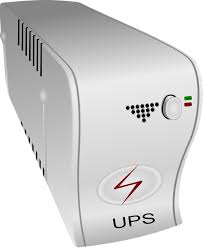
The recent power outage in Melbourne Northern Suburbs show that even places in safe areas you would think safe from power supply powers are not. Unfortunately, this problem of power outages does not appear it will be solved soon.
My view is if it happens once, okay but any more than you need to consider a computer electric backup unit as a point-of-sale system can be seriously affected by power. The problem can be much bigger than just everything turns off, although few shops with a point of sale system like their computers down for an extended period. If the outage is a surge, this surge can destroy everything. I have seen the result of a surge going through an old monitor, exploding it and sending glass flying like bullets through a room. Luckily, it was a store room, and the person in it was not in front of the computer, but behind a shelf when it happened. The problem is that nothing in a computer likes bad power.
If you are thinking of buying such a unit, here are tips to consider:
First point is to make a determination of how long do you think a reasonable power outage will be in your area. If you think, it will be for a few minutes maximum, all you will need is a small unit, if you think, it could go for say an hour, you obviously need to look at something better.
For the slight extra cost it worth getting surge protection. Currently, the surge is a growing problem. An old one that you are throwing out with surge protection can often be used somewhere else such as protecting a Hi-Fi at home.
Check the size, today you can get small units that work fine.
Check the date of manufacture, some units on special, I have noticed are very old units. That the unit being old is not the problem it's the battery. An old battery even if not used is generally no good anymore. So the unit is probably useless unless you can get a new battery. Note batteries are often not returnable.
Switch it on, I have seen some units that do not work, this is not an uncommon problem unfortunately with power units. Most of them today have a self-diagnostic which you can use. One problem is that often these self-tests are not reliable. I have seen units that fail on these self-tests but work fine. So these tests are only good as a guide.
Next you need to check that they are good as soon as you get them, I have seen some with bad batteries that are lemons. What you do is charge it up, then switch off the power and see how long it lasts. Now check if it recharges when you turn the power on, I have seen some that do not recharge. It's the battery, and batteries are noxiously unreliable.
What I really hate is some of these units have a bell or buzzer which working while it switches to battery and for extended periods, this sound is very annoying. I would not recommend such units.
Lastly, these units seem to have very variable life cycles, we give a year warranty on the one we sell so you are safe for a year with us, but many only give three months. In any case you need to test, these units say once a quarter.
Hope this helps.


